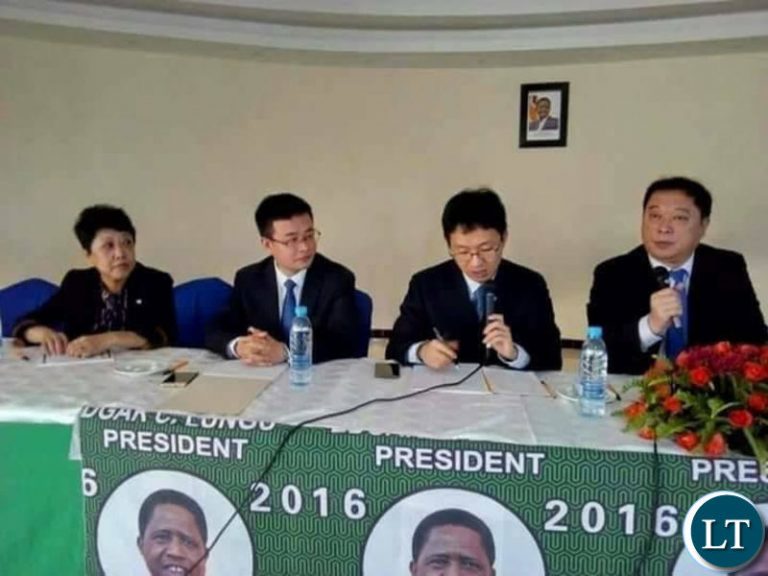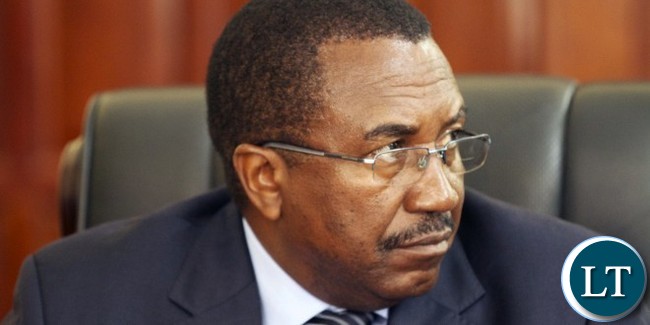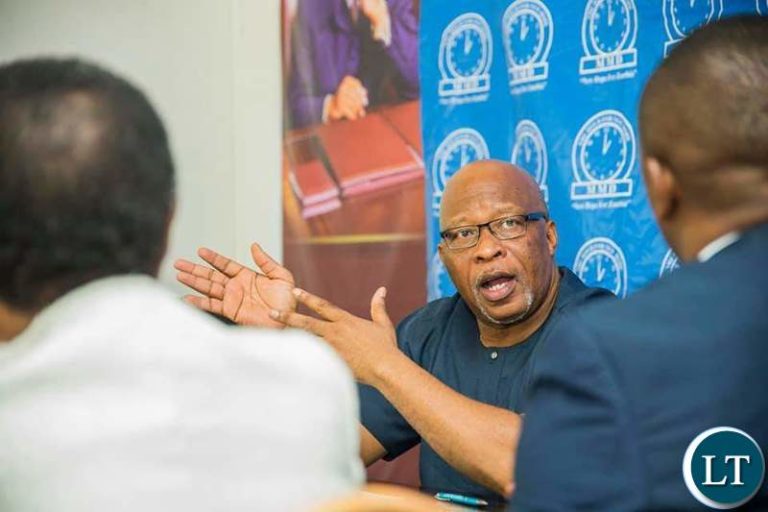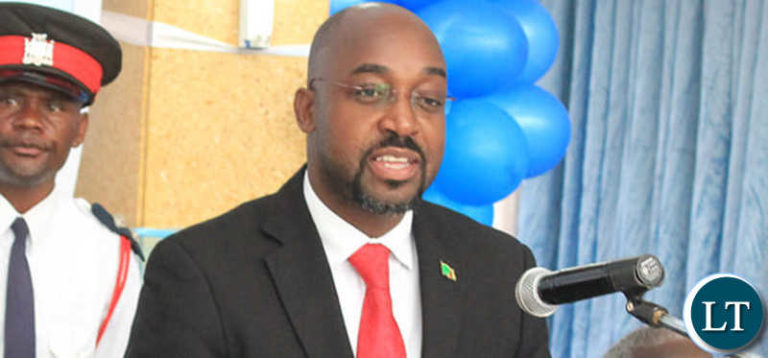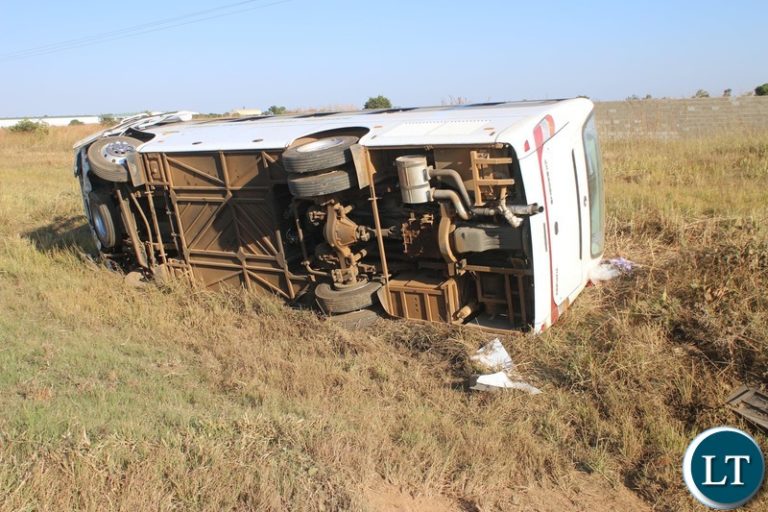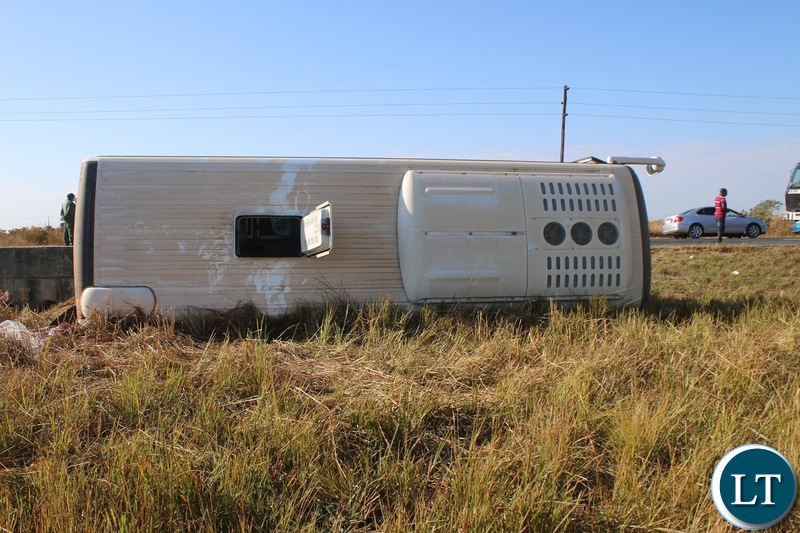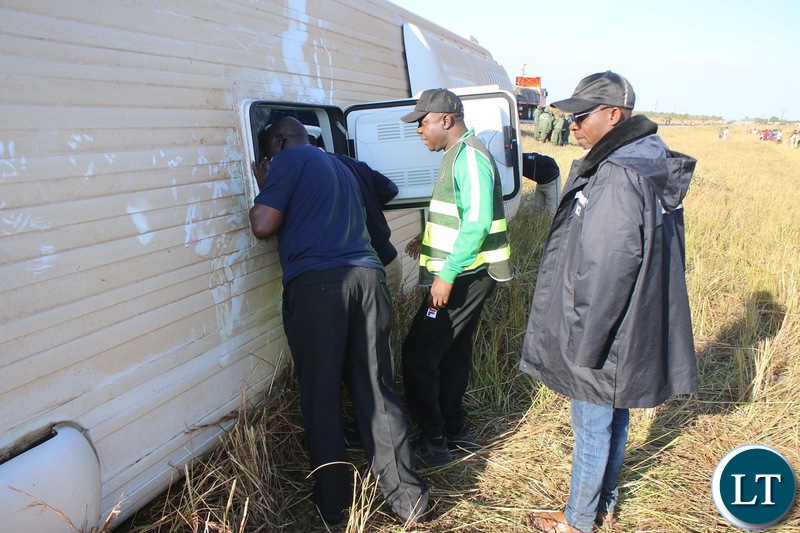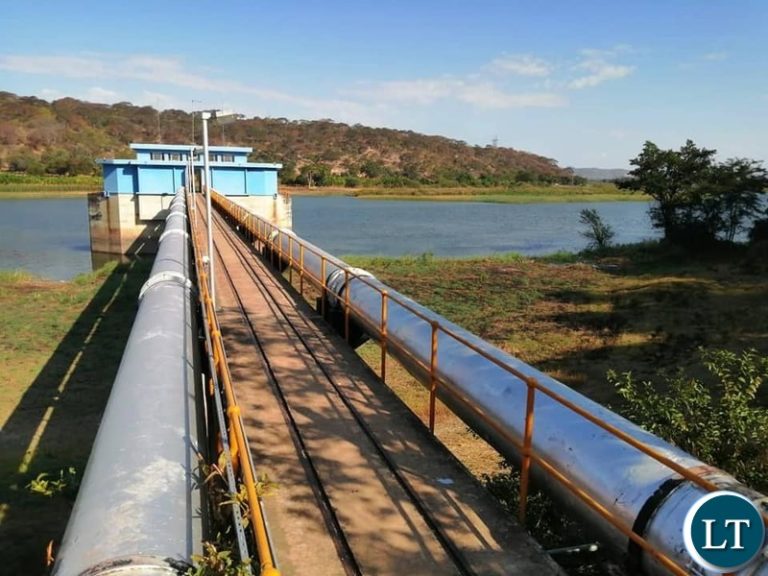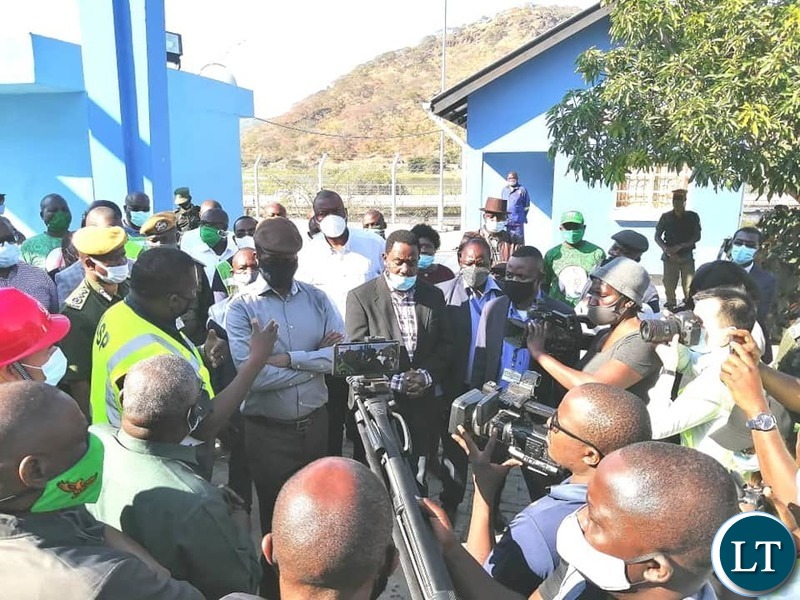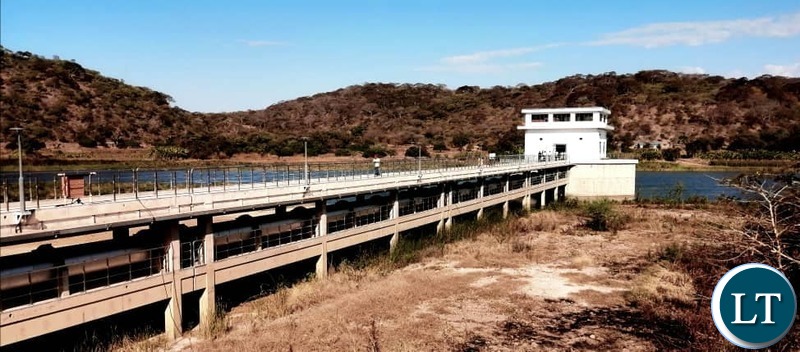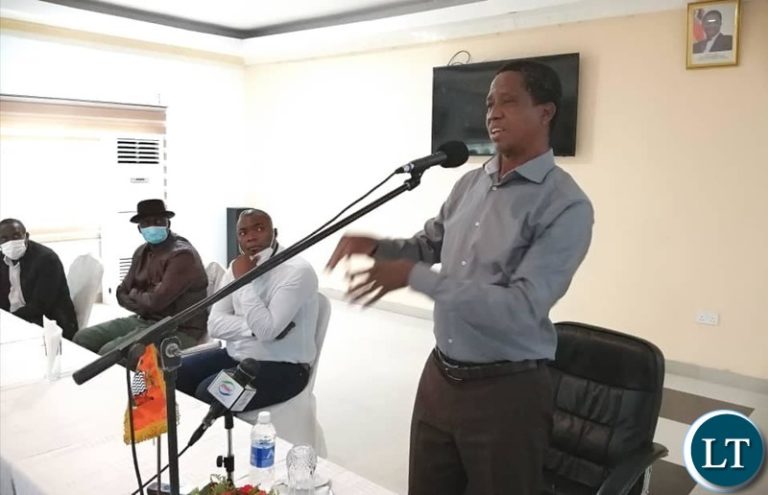By Field Ruwe EdD
SAVE ZAMBIA OR PERISH
Come on now Zambians, are we that ignorant, stupid, foolish, gullible, brainless, naïve, primitive we can’t see the consequences of the “wonderful Chinese gifts” in roads, airports, bridges, and buildings, and the biggest bribery of the century? The forced humiliating apology by Lusaka Mayor Miles Sampa for raiding a Chinese restaurant and Chinese barber shop to curb racial discrimination is clear testament that Edgar Lungu has sold Zambia to the Chinese for a pound of flesh, and that Zambia is at the cusp of making history as the first African state to be colonized by China.
Please don’t stop here. If you love Zambia pull a little patriotism from the chamber of your heart and read this article in its entirety. Don’t ignore it because it is written by me, a person you suspect to be partisan. Sometimes there is a particularly concerned person in the crowd who screams “what is wrong with us!” That’s me. There is nothing I am more anxious than my country of birth and for that I shall not sit idle and watch it taken away from me.
First and foremost, I tip my hat to Mayor Miles Sampa. His courageous raids on the racist Chinese settlers warmed my heart. I shall forever hold this young politician in high esteem. Without any hesitation, he shared his deep-seated hatred for racism, and tried openly to cut off its ugly head before it gives life to Chinese terrorization of Zambians.

Since 1964, Zambians have never experienced racial discrimination of this kind. Edgar Lungu was 5 years old when Dr. Kenneth Kaunda spearheaded a disobedient campaign called cha-cha-cha that forced Zambians to throw stones, block roads and set fire to buildings. Why? Because white settlers denied Africans the same liberties and equalities. They called us apes, baboons, dogs, and kaffirs. We were not allowed in white-owned shops. We had to stand at the window to buy what we wanted. To fight such dehumanization meant to die for country. Today, the Zambian eagle flies over graves littered by gallant men and women.
Fifty-six years later, we have found ourselves targets of acts of hate and racism due to irrational and inept lustful leadership tolerated by 17 million people who seem to have accepted their fate. Seventeen million people, free born, free bred, yet oblivious of what surrounds them. Seventeen million people who share sovereignty and dominion among themselves, but have failed to rise to the level of stateliness. Seventeen million people, who out of sheer laziness, naivety, gullibility are gladly preparing themselves for the new republic of Chambia led by the Chinese, a people who call us heu gui (black devils).
CHINESE WORST RACISTS
In 2007, Guy Scott in an interview with The Guardian said: “We’ve had bad people before. The whites were bad, the Indians were worse, but the Chinese are worst of all.” Indeed, when it comes to Africans, the Chinese, young and old, are the most heartless. Their racist sentiments are more prevalent, unashamedly inhuman, and matter-of-factly expressed both overtly and covertly.
Many Chinese say we are misfit off-springs; that we stink—watch Chinese’s body language in the presence of black Zambians—pinching or rubbing of nose or avoiding to sit next to you on public transport. They say we are disease carriers, AIDS, and now their very own Corona virus. They say we are half human; that we have a low IQ, and therefore unintelligent regardless of academic status. Some use the word slave to describe our relationship with them. In sum, Chinese settlers see us as a docile people. It is with this in mind they are fast creating a master race in Zambia.
Hold on. I need to pause and take a deep breath because this stuff is painful to write, I tell you. Just now I feel like yelling; “Lungu, what’s wrong with you?” But this may be judged in appropriate. Yet when I am watching him lose his grip on our motherland, such are the only words at the tip of my tongue. I wish I could be allowed to express my freedom of speech in more ways than one, I would say much more about this reckless man who has led us to the cusp of losing not only our human dignity, but our country.
EDGAR LUNGU THE WEAKEST LINK
The Chinese general and military strategist Sun Tzu once said: “When the leader is morally weak and discipline not strict, when his instructions and guidance are not enlightened, when there are no consistent rules, neighboring rulers will take advantage of this.” In light of this, Chinese President Xi Jinping put Edgar Lungu at the top of his Sino-imperialism agenda. Xi Jinping and his “Beijing Boys” at the Ministry of State Security (MSS) have found Lungu the most gullible of all African leaders. According to Africa Confidential newsletter and other principal investigating outlets, Lungu is among the most beneficiaries of the “no strings attached loans” and the hard to trace Chinese bribes.
When they first met, Xi Jinping saw in Lungu a visionless, gluttonous, and corrupt politician who fitted seamlessly in the Chinese’s corrupt “dollar diplomacy.” Chinese bribes paid to Lungu have resulted in the over-borrowing syndrome that has long been a disguising way of leaders amassing personal wealth while in office. Consequently, since Lungu assumed power, Zambia’s spiraling debt has reached close to $10 billion, up from $1.9 billion in 2011.
They say, he who tastes wealth is always in want. It would be folly to think Lungu has not made a fortune out of Chinese bribes. I, a citizen of Zambia, is calling upon international investigative wings to investigate Lungu’s mis-declaration of assets, bank accounts at home and abroad, and suspected substantial Chinese concessions. A declaration of Lungu’s assets and wealth will show and explain how under the guise of economic growth and poverty alleviation, China has immersed Zambia in irredeemable debts.
I strongly propose Scotland Yard use Lungu’s confidant Kaizar Zulu as a lead. I also make a citizen submission to the anti-corruption of Zambia to open a file on Zulu. Zulu in his recent comments in one of the media outlets wrote: “I have nothing against the UK. In fact I own some assets there and houses. However, I am stationed and will always be based in the country I love, Zambia.” The anti-corruption law specifies that a civil servant found indulging in bribery and other acts motivated by the objective of increasing personal wealth, was to be pronounced corrupt and prosecuted.
ZAMBIA’S SPINE BROKEN –PROCESS OF TAKING OVER IN PROGRESS
Lungu’s declaration of wealth and assets will help show how China broke Zambia’s spine, and why Lungu is now completely at the mercy of Xi Jinping. For Chinese President Xi Jinpin, a journey of a thousand miles that began with one step has brought him at Zambia’s doorstep. The Republic of Chambia is now a matter of formality.
In January this year, the Chinese government began the process of taking over Zambia. According to the business risk consultancy EXX Africa, Chinese firms are seeking management of Zambian mining assets as collateral for loan defaults. The Chinese government is seeking control of Glencore’s Zambia subsidiary Mopani, and First Quantum Minerals. Additionally, China intends to run Zambia National Broadcasting Corporation for propaganda purposes.
Chinese control of our media, mineral and other natural resources is the death of us. Lungu’s naivety, and the ability of the Chinese government to use Lungu for its own ends and create a master race in our God-given land is unconscionable. To think we are all like birds seated on a line laced with glue hopelessly waiting to be controlled by a people who harbor extreme hatred and racism for us, is heartbreaking. Our Zambian flag is despairingly flying. The words of our national anthem are meaningless. Can it then be stated here and now that we are bound by poverty, docility, despair, and death—that that’s how God meant it to be?
Where are all the freedom fighters? Most are departed. We cannot take away anything from them; from Dr. Kenneth Kaunda even. They did their part. All we can do is thank them. The onus is now on the new generation. Sampa, Shisuwa, and your peers are left to your devices. You shall NOT suffer due to the incompetence of one elected official. You all are in danger of being expunged by the Chinese. Their goodwill investment has resulted in an incalculable damage to your plight as humans and cast a shadow of doubt on your future.
WE HAVE ONLY ONE COUNTRY
There is a ray of hope though. I recently saw a poster of Mayor Sampa surrounded by some of the most forthright and opinionated young Zambians posed in vigilante spirit. Among them are the “Steve Bikos” of our time. They shall not be left with only a nod. They can see Zambia fast declining to pre-1964 times. They understand the motive and thinking of the Chinese and are prepared to mobilize themselves against imperialist forces. Their nationalism is the thing of the heart. They value who they are, they value who the other Zambian is. They refuse the Chinese as their superior, and accept him as their equal.
Fighting racism does not need a military uniform or an individual task. It’s a collective undertaking. Join Sampa, Sishuwa, and others young patriotic Zambians to fight for your motherland. The future of Zambia hangs upon your will and power to fight back. There’s no room for xenophobia in Zambia. There no room for violence. We are not like that. But if you see any signs of racism, confront it without any hesitation. Let the racist know this is your country. Defend it from every attempt of invasion, even if it means risking your life. You only have one country, inaction is at your own peril. Save Zambia or Perish!
Author is a US-based Zambian multicultural scholar practitioner and author. He holds a Doctor of Education degree from Northeastern University, Boston Massachusetts, U.S.


